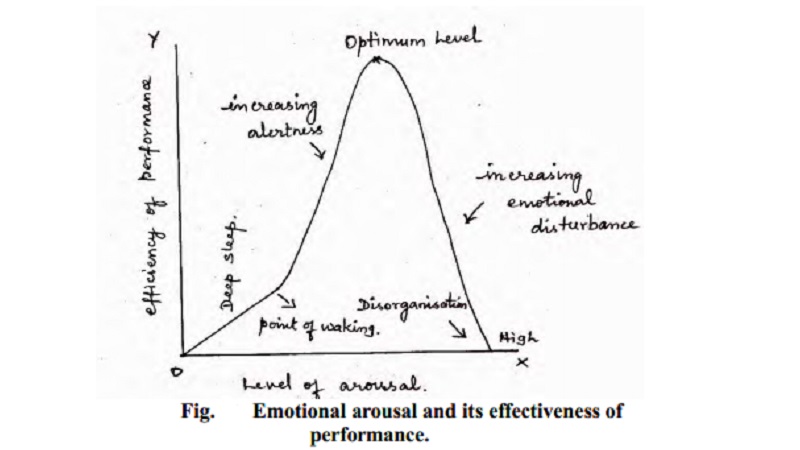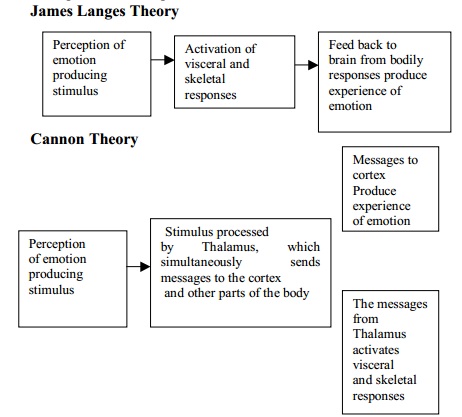Chapter: 11th 12th std standard Class Nursing Health Care Hospital Hygiene Higher secondary school College Notes
Psychology : Theories of Emotion

THEORIES OF EMOTION:
James
theory or emotion proposes the following sequences of events in emotional state
First we perceive the situation that will produce emotion.
Second we react to this emotion. Third we notice our action. The perception of
the reaction is the basis of the emotion as we feel and experience it.
The major objection to James Lange
theory came from Cannon Who pointed
out that changes do not seem to differ very much from one emotional state to
another.
The internal organs are relatively
intensive structures not well supplied with nerves and internal changes occur
too slowly to be a source of emotional feelings.
Artificially inducing the bodily
changes associated with an emotion injecting a person with adrenaline does not
produce
the experience of the true emotion.
Emotion when sufficiently intense
can seriously impair the processes that control organized behaviour.
The
following diagram illustrate the relationship between the level of emotional
arousal and the effectiveness of performance.
Emotional behaviour studies in infancy and early childhood
by means of direct observation. Motion pictures and recording of children' s
cries indicate that the infants' response to stimuli designated to arouse
emotion are very diffuse and lacking in organization.
Emotional
shocks and hurts suffered by individuals at an early age can handicap them as
long as they live. Children sooner or later acquire the capacity for
experiencing negative emotions such as anger, fear and also sorrow or grief to
an intense degree.
This capacity develops, before the
child is mature enough to use language, to formulate his experience in words.

For a time, the infants' expression of rage is poorly
organized. Later his anger becomes more definitely directed at some thing or
some body. Changes can likewise be noted in a child' s expression of fear and
his reactions to pain.
These improvements in the young child' s ability to respond
in specific ways to situations that arouse him, parallel the development of his
mental and motor abilities.
As the child ' s intellectual and
motor capacity matures, he acquires large variety of means and forms of
expressions such as overt and direct to more graded covert and indirect.
The habit of concealing emotion may become especially
burdensome under two conditions. If a person may mask intense feeling of anger
that occurs when someone hunts his pride very sharply and then still harbouring
his anger, may explode on another occasions because of a very trivial affront.
Again suppression of any show of emotion may be harmful if
an individual for one reason or another has put a lid on any impulse to show
affection and its awkward and even rude, when he happens to feel very
affectionate toward some one and wishes that he could some how show it in a
spontaneous way.
The most important factors in a child' s emotional
development are the affection that he receives from his parents, peer group and
society. This gives opportunity to develop wholesome affection for his fellow
creatures.
The more genuine the parents love
for the child, the more the child tends to feel free to love other people. More
over he is likely to express all his emotions at ease.
All
physiological healthy nurses are likely to feel some affection for patients in
their charge or with whom they have a chance to associate even though the
children are not their own.
Affection is important for an individual ' s emotional
welfare promoting security. The unloved person may suffer in connection with
the development of positive attitudes and concepts concerning his own worth.
Related Topics